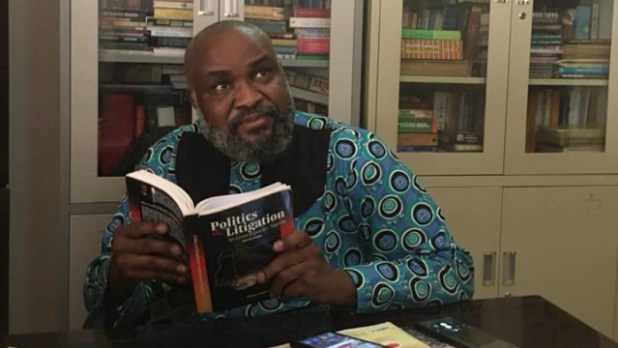
In the year 2017, findings from a study on corruption in Nigeria jointly coordinated by the United Nations Office on Drugs and Crime (UNODC) and the National Bureau of Statistics (NBS) were published in a booklet which in essence restated the notorious fact that the twin evils of corruption and bribery have assumed the dimension of a hydra-headed monster in Nigeria just as the Nigerian police force which is the mainstream national law enforcement agency in the Country was indicted as the most corrupt agency in the Country.
The researchers discovered what is already a notorious public knowledge that almost a third of Nigerian adults (32.3 per cent) who had contact with a public official between June 2015 and May 2016 had to pay, or were requested to pay, a bribe to that public official.
The magnitude of public sector bribery in Nigeria becomes even more palpable when factoring in the frequency of those payments, as the majority of those who paid a bribe to a public official did so more than once over the course of the year, so they stated.
According to the survey, bribe-payers in Nigeria pay an average of some six bribes in one year, or roughly one bribe every two months.
The researchers stated that by combining the total number of people who paid a bribe to a public official with the frequency of those payments, it is estimated that a total of roughly 82.3 million bribes were paid in Nigeria in the 12 months prior to the survey.
These results in an average of 0.93 bribes paid per adult, or almost one bribe paid by every adult Nigerian per year, the report stressed.
Also, another interesting dimension is that the findings show that taking into account the fact that nine out of every ten bribes paid to public officials in Nigeria are paid in cash and the size of the payments made, it is estimated that the total amount of bribes paid to public officials in Nigeria in the 12 months prior to the survey was around 400 billion Nigerian Naira (NGN), the equivalent of $4.6 billion in purchasing power parity (PPP).
This sum statistically is equivalent to 39 per cent of the combined federal and state education budgets in 2016.
The average sum paid as a cash bribe in Nigeria is approximately NGN 5,300, which is equivalent to roughly $61 – PPP just as this means that every time a Nigerian pays a cash bribe, he or she spends an average of about 28.2 per cent of the average monthly salary of approximately NGN 18,900.
Since bribe-payers in Nigeria pay an average of 5.8 bribes over the course of one year, 92 per cent of which are paid in cash, they spend an average of NGN 28,200 annually on cash bribes ― equivalent to 12.5 per cent of the annual average salary.
The above findings they affirmed could explain why, after the high cost of living and unemployment, Nigerians consider corruption to be the third most important problem facing their country, well ahead of the state of the country’s infrastructure and health service.
Public sector bribery they scientifically deduced is not the only form of corruption affecting Nigeria: the prevalence of bribery in relation to selected employees of private companies is 5.5 per cent, meaning that bribery is also significant in the private sector in Nigeria.
However, the payment of bribes to public officials is the most familiar and widespread form of corruption directly experienced by the population and the one that most affects the lives of ordinary citizens.
The vast majority of bribery episodes in Nigeria the researchers found out are initiated either directly or indirectly by public officials (85.3 per cent) and almost 70 per cent of bribes are paid before a service is rendered.
“With such a large portion of public officials initiating bribes, which are paid up front, it seems that many public officials show little hesitation in asking for a kickback to carry out their duty and that bribery is an established part of the administrative procedure in Nigeria.”
Going further, the report stated that while money is by far the most important form of bribe payment in Nigeria, the survey shows that other forms of bribe payment, such as the provision of food and drink, the handing over of valuables or the exchange of another service or favour, also exist. For instance, most club girls and commercial sex workers arrested by task force operatives of the Nigerian police force usually give sex under duress for their release.
Qualitative research shows that such exchanges may sometimes include sexual services, although the actual extent of that particular form of bribe payment is unknown.
The survey done under strict adherence to global best practices shows that a large proportion of bribes in Nigeria (42 per cent) are paid to speed up or finalize an administrative procedure that may otherwise be delayed for long periods or even indefinitely, thus making bribery the most effective option for facilitating that service.
The second largest proportion of bribes (18 per cent) is paid to avoid the payment of a fine, a frequent request in citizens’ encounters with the police, while 13 per cent of all bribes are paid to avoid the cancellation of public utility services, an indication that the provision of the most basic amenities, including water and sanitation, can be subject to abuse of power by public officials in Nigeria.
Then the clincher, whereby the researchers found out that Police officers are the type of public official to whom bribes are most commonly paid in Nigeria.
“Of all adult Nigerians who had direct contact with a police officer in the 12 months prior to the survey, almost half (46.4 per cent) paid that officer at least one bribe, and in many cases more than one since police officers are also among the three types of public official to whom bribes are paid most frequently (5.3 bribes per bribe-payer over the course of 12 months) in Nigeria. At the same time, the average bribe paid to police officers is somewhat below the average bribe size.” Next in line in terms of notoriety in bribes taking is the juduciary”.
Although the report found out that fewer people come into contact with judicial officials than with police officers over the course of the year, when they do, the risk of bribery is considerable: at 33 per cent, the prevalence of bribery in relation to prosecutors is the second highest, closely followed by judges and magistrates, at 31.5 per cent.
The experience of corruption in encounters with public officials whose duty it is to uphold the rule of law can lead to the erosion of trust in public authority,they reasoned accurately. In addition to bribery, extortion and harassment by the police, the Nigerian Police Force is notorious for extralegal killings of suspects who failed to pay bribes just as the Special Anti-robbery Squad of the police known as SARS are the worst kind of criminal species to have graced the geographical space called Nigeria.
A cursory look at the above extensive research findings will immediately instigate the query why this reflection of a matter that has become a rule rather than exception in the police? This is why I’m doing this piece.
The Inspector-General of Police (IG), Mr Mohammed Adamu, is now in the news and has reportedly charged public relations officers (PROs) of the Nigeria Police Force to work towards reinventing the image of the Force and negate the impression in the public that it was corrupt.
Adamu according to stories in the media was said to have spoken through a representative in Agulu, a town near Awka in Anambra State, during the opening ceremony of a four-day capacity building workshop for police PROs in Nigeria, which commenced on Tuesday.
The Assistant Inspector General of Police (AIG) in charge of Zone 9, Umuahia, Mr Tijanni Baba, who stood in for the IGP said the workshop was part of his administration’s commitment to enhancing the capacity of the police PROs to help them manage the image of the Force well.
“Public relations officers have the primary responsibility to manage the image and information dissemination process, towards repositioning the Nigeria Police and changing the uninformed perceptions and faulty narratives about the Nigeria Police Force.
“This is with a view to rebranding the Force, advancing our fortunes, and restoring our primacy within the internal security architecture of the nation.
“It is my expectation that at the end of the workshop, your capacity would have been significantly broadened and your skills sharpened for optimal performance especially in the area of bridging the gap between the police and members of the public and enhancing a people-friendly and community-driven Police Force.
“It is also my expectation that you shall at the end of this programme, imbibe the concept and practice of strategic information management and develop strong critical thinking ability needed to dissect and manage complex public relations challenges in the most professional manner,” the IG said.
According to Adamu, “To a very large extent, the efforts of the FPRO and his team of PPROs across the country have not gone unnoticed by the public. I must therefore, commend you for your efforts which are positively impacting public perception of the Force. However, there is still much work to be done towards correcting the age-long stereotypes about the Force.
“I challenge you not to rest on your oars but maintain optimal professionalism at all times. You must re-invent the image of the Force.”
At first, reading this piece of story will automatically convey the impressions that the hierarchy of the Nigerian police force has been busy sleeping on duty to such a ridiculous extent that it has just suddenly realized how bad the image problem is for a policing institution that has won every award available in Africa for infamy and corruption for the last three decades or more. As a local saying goes, ‘no be today yansh dey for back’. So, it is not today that the conflict of identity has confronted the police in Nigeria.
Take for instance, when the then President Olusegun Obasanjo got so miffed about the seemingly irredeemable image crisis afflicting the Nigerian police force had become very embarrassing, he had to go public with his displeasure when he announced that the entry mechanisms of the policing institution has been compromised leading to the scandalous recruitment of ex-cons, prostitutes and armed robbers into the Nigerian police Force. Years later, the Independent Corrupt Practices and Allied offences commission (ICPC) a body whose enforcement components are made up of police men drafted from the Nigerian police force came reportedly came out with a widely read rating that the Nigerian Police Force ranked as the most corrupt public institution in Nigeria. The selection of the venue for this event by the police being in the South East of Nigeria is critical because of all the geopolitical zones in the Country, the South East of Nigeria suffers the most in terms of brazen display of professional reality by the police who are virtually in every street corners in that region extorting bribes from drivers and harassing passers by.
Although the Anambra State Governor, Chief Willie Obiano, who declared open the workshop, said he was glad that the event was brought down to Anambra and also that his government was not paying lip service to security, and would further demonstrate so this Friday, when he would be launching a security operation code named, Operation Kpochapu, which would be geared towards ensuring security in the state during the months leading to the yuletide and beyond. Tne larger questions which must be confronted to restore public trust in the police did not feature in both the speeches of the Anambra State governor and the nation’s police chief. The Anambra state governor decided to use the opportunity of speaking at the public relations event for the police to advertise his administration.
Hear him: “We are not paying lip service to security in Anambra, and our state is the safest state today in Nigeria. On Friday, we shall be launching another security operation, and I’m going to be giving out security vehicles to enhance the work of your men. These vehicles are fitted with security gadgets and are going to be the very first in this part of Africa,” Obiano said.
The workshop as reported by the media was organized for the Force PRO, staff in the office of the Force PRO, 12 zonal PROs and police PROs in the 36 states of the federation and Abuja.
What must be done to sanitize the police is this- the police hierarchy must implement measures to enforce discipline and wipe out professional misconduct. The recruitment and entry mechanisms must be cleaned up to stop the infiltration of criminal elements into the police. Many criminals bribe their ways to join the police.
But as I write, the body statutorily empowered to discipline erring police operatives up to holders of the rank of Deputy Inspectors General called the Police Service Commission (PSC) is in a power tussle with the Inspector General of Police over whose legal duty it is to recruit police operatives.
Whereas the Constitution and the Police Service Commission Act gives the power to the police Service Commission, the IGP is laying claim to that power which he doesn’t have. Unfortunately, the President who ought to wield the big stick to forestall anarchy is aloof to the ongoing superiority battles as if he is not in charge.
Already the recruitment of 10,000 police operatives ordered by the President is on hold due to the power tussle. The police Service Commission accused the police of hijacking their function and for trying to recruit unqualified persons into the Nigerian police force.
So how is the Inspector General of Police seeking to fix the self inflicted bad image of the police when his office wants to assume a power that extant laws have donated to the police Service commission? At best, the workshop to address the public relations nightmare of the Nigerian police force is a waste of public fund.
Secondly, the Police Service Commission needs to be strengthened and a top professional appointed to head the commission rather than this unworkable tradition of always appointing former Inspector General of Police to head the same commission that ought to deal with issues of professional misconduct which has remained a thorn in the flesh of the policing institution.
There has to be fundamental amendments of relevant laws to bring about the needed independence of the Police Service Commission and the establishment of crime and ballistic laboratories staffed by skilled persons to monitor the use of weapons by the police so as to check cases of extra judicial killings.
No amount of propaganda or lies can control or minimize the damage the police operatives inflict on the institution of the Nigerian police force except there is a very effective mechanisms for checking the proliferation of indiscipline and other criminal tendencies by the police which are widespread even as the police waste public money discussing ways and means to change the image problem of the Nigerian police force. The truth is that only a holistic approach through institutional and legal reforms can bring about a professionalised and respected Nigerian police force and not by dishing out lies through sponsored media articles or soft tissues of lies packaged as news items to be placed in newspapers through shady transactions.
The ball is in the Court of Nigerians to take drastic steps to reposition the Nigerian police force.
*Emmanuel Onwubiko heads Human Rights Writers Association of Nigeria (HURIWA) and blogs @www.emmanuelonwubiko.com; www.thenigerianinsidernews.com

You may be interested

Arteta Provides Injury Updates On Five Arsenal Players Ahead Palace Clash
Webby - December 20, 2024Arsenal manager Mikel Arteta has revealed that Declan Rice and Riccardo Calafiori are both available to be in the Gunners…

Carabao Cup: Spurs Edge Man United In Seven-Goal Thriller To Reach Semi-finals
Webby - December 19, 2024Tottenham Hotspur edged Manchester United 4-3 in the quarter-finals of the Carabao Cup on Thursday.Spurs raced to a 3-0 lead…
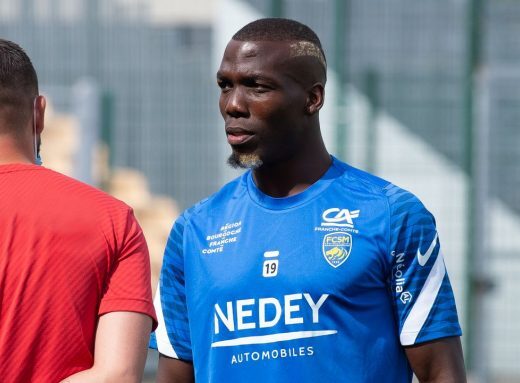
Pogba’s Brother Sentenced To Three Years In Prison
Webby - December 19, 2024Mathias Pogba, brother of former Manchester United star Paul Pogba, was sentenced Thursday by a Paris criminal court to three…


![VeryDarkMan Accuses Reno Omokri Of Allegedly Suppressing Brother’s Rαpe Case [Video]](https://onlinenigeria.com/wp-content/uploads/2024/04/verydarkman-accuses-reno-omokri-of-allegedly-suppressing-brothers-rceb1pe-case-video-300x157.jpg)
![Confusion As May D And Uche Maduagwu Engage In Physical Fight Publicly [Video]](https://onlinenigeria.com/wp-content/uploads/2024/04/confusion-as-may-d-and-uche-maduagwu-engage-in-physical-fight-publicly-video-300x150.jpg)
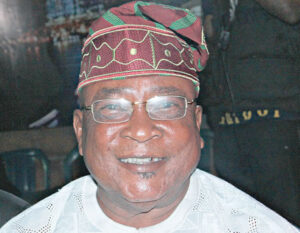




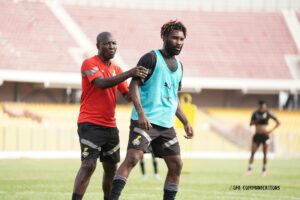








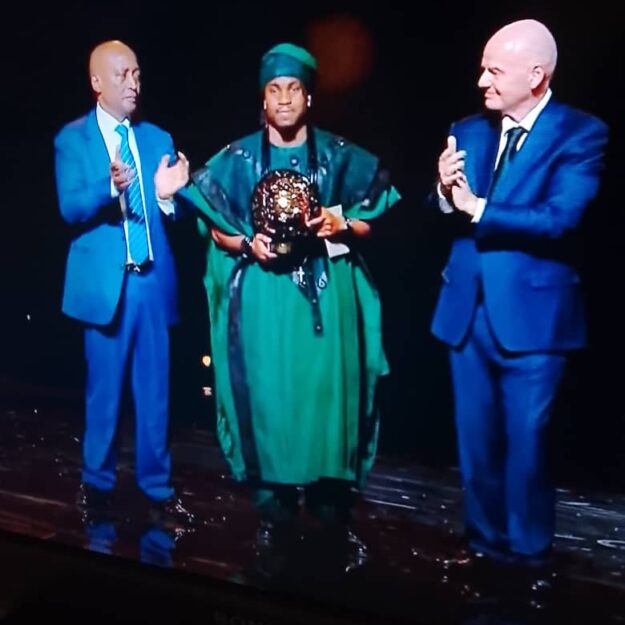

![American Pastor, David Wilson Seen Eating The Box Of Woman Who Isn’t His Wife [Video]](https://onlinenigeria.com/wp-content/uploads/2019/10/american-pastor-david-wilson-seen-eating-the-box-of-woman-who-isnt-his-wife-video-150x150.jpg)








